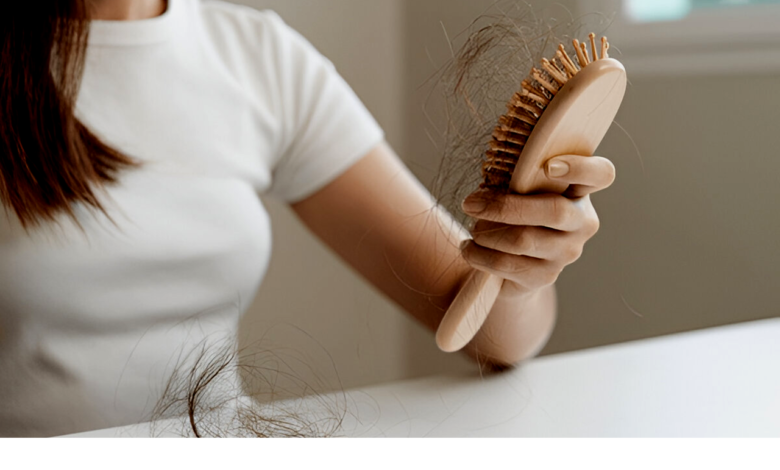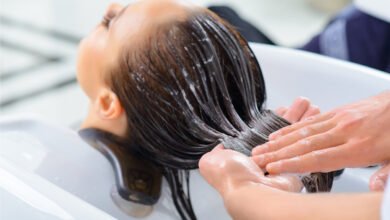Hair Loss Remedies That Actually Work for Women and Men
Discover hair loss remedies that actually work for women & men proven treatments natural solutions and expert tips to restore healthy hair growth.

Hair loss is a frustrating and confidence-shaking experience that affects millions of women and men worldwide. If you’re searching for hair loss remedies that actually work, you’re not alone thinning hair, receding hairlines, and excessive shedding can stem from genetics, hormonal imbalances, stress, or nutritional deficiencies. The good news is that numerous effective treatments, both medical and natural, can help slow down hair loss and even promote regrowth. This guide explores science-backed solutions to restore your hair’s health and vitality.
Understanding the root cause of your hair loss is the first step toward finding the right remedy. Whether you’re dealing with male or female pattern baldness, temporary shedding due to stress, or damage from styling and chemicals, there are proven ways to combat thinning hair. From FDA-approved medications like minoxidil to natural treatments such as rosemary oil and scalp massages, we’ll break down the most effective strategies to help you regain thicker, stronger hair. Let’s dive into the solutions that deliver real results.
Hair Loss Remedies That Actually Work for Women and Men
Comprehensive Guide to Effective Hair Loss Remedies
Hair loss affects millions of people worldwide, with causes ranging from genetic predisposition to environmental factors. While some degree of shedding is normal, excessive hair thinning or bald patches can be distressing. Fortunately, numerous hair loss remedies that actually work are available, offering hope for those seeking to regain their hair’s vitality.
Understanding the Causes of Hair Loss
Genetic & Hormonal Influences
Male/Female Pattern Baldness This hereditary condition affects 50% of men by age 50 and 40% of women by menopause. In men, it typically begins with receding temples and crown thinning (Norwood Scale), while women experience diffuse thinning at the part line (Ludwig Scale). The primary culprit is dihydrotestosterone (DHT), a hormone that shrinks hair follicles over time. Hormonal Shifts: Pregnancy, menopause, PCOS, and thyroid imbalances (hypo/hyperthyroidism) disrupt growth cycles. For example, postpartum women often face temporary telogen effluvium (excessive shedding 3-6 months after childbirth) due to estrogen fluctuations.
External & Lifestyle Triggers
Nutritional Deficiencies Iron deficiency (common in women with heavy periods), low protein intake, or deficiencies in zinc, vitamin D, and B vitamins can starve follicles. Crash dieting or eating disorders (e.g., anorexia) often trigger sudden hair loss. Stress & Autoimmune Reactions Chronic stress elevates cortisol, pushing hair into the shedding (telogen) phase prematurely. Autoimmune conditions like alopecia areata cause patchy loss when immune cells attack follicles. Harsh treatments (bleaching, tight braids) or heat tools lead to traction alopecia, damaging follicles irreversibly over time.
Medical Treatments for Hair Loss
Topical & Oral Solutions Minoxidil & Finasteride
Minoxidil (Rogaine) is a vasodilator that extends the hair growth (anagen) phase by increasing blood flow to follicles. Available as a 2% (women) or 5% (men) topical solution or foam, it’s applied twice daily. Studies show 40–60% of users experience noticeable regrowth after 4–6 months, though discontinuation reverses results. Side effects may include scalp irritation or unwanted facial hair growth. Finasteride (Propecia) is a daily oral pill that blocks 5-alpha-reductase, the enzyme converting testosterone to DHT (the hormone that miniaturizes follicles in genetic hair loss). It’s 90% effective in halting progression and 65% effective in regrowing hair in men, but contraindicated for women due to birth defect risks. Potential side effects include decreased libido (reversible upon stopping).
Advanced Therapies LLLT & PRP
Low-Level Laser Therapy (LLLT) uses red/near-infrared light (650nm) to stimulate cellular metabolism in follicles. FDA-cleared devices like Laser Cap or Thera dome require 3–4 weekly 30-minute sessions. Clinical trials show a 35% increase in hair density after 6 months, with maintenance sessions needed for sustained results. Ideal for early-stage hair loss. Platelet-Rich Plasma (PRP) harnesses growth factors (VEGF, FGF) from the patient’s centrifuged blood. Injected monthly for 3–4 months, then quarterly, it activates stem cells in dormant follicles. Meta-analyses report 30% thicker hair in 70% of patients. Best for diffuse thinning or as an adjunct to transplants.
Natural and Home Remedies
Rosemary Oil & Aloe Vera Nature’s Power Duo
Rosemary oil has been scientifically shown to stimulate hair growth as effectively as minoxidil, without the side effects. Its active compounds boost circulation to hair follicles, promoting thicker strands and reducing DHT (a hormone linked to hair loss). For best results, mix a few drops with a carrier oil (like coconut or jojoba) and massage into the scalp 2-3 times weekly. Aloe vera acts as a natural scalp detoxifier, removing dead skin and excess sebum that clog follicles. Its anti-inflammatory enzymes soothe irritation linked to conditions like dandruff or psoriasis, which can contribute to hair thinning. Apply fresh aloe gel directly to the scalp, leave for 30 minutes, then rinse for stronger, less brittle hair.
Scalp Massage & Nutrition the Foundation of Hair Health
Scalp massage isn’t just relaxing it’s therapeutic. Just 5 minutes daily with your fingertips or a silicone scalp massager increases blood flow by up to 20%, delivering oxygen and nutrients to dormant follicles. Studies show this can thicken hair density over time, especially when combined with essential oils like peppermint or lavender. A balanced diet targets hair loss at its root cause. Key nutrients include Biotin & Zinc (eggs, nuts): Strengthen keratin infrastructure. Iron (spinach, lentils): Prevents anemia-related shedding. Omega-3s (fatty fish, flaxseeds): Reduce scalp inflammation. Vitamin D (sunlight, mushrooms): Activates dormant follicles. A deficiency in any of these can trigger excessive shedding, making whole foods the first line of defense.
Lifestyle Changes to Prevent Hair Loss
Stress management is vital, as chronic stress triggers telogen effluvium, a condition where hair prematurely enters the shedding phase. Practices like yoga, meditation, and adequate sleep can mitigate this effect. Additionally, avoiding tight hairstyles, excessive heat styling, and harsh chemicals reduces breakage and damage.
When to Seek Professional Help
If hair loss is sudden, severe, or accompanied by other symptoms like itching or pain, consulting a dermatologist is crucial. They can diagnose underlying conditions and recommend personalized treatments, such as prescription medications or advanced therapies like hair transplants.
Read More: Natural Solutions for Headaches What the Experts Recommend
Conclusion
Finding hair loss remedies that actually work requires patience, consistency, and a tailored approach based on your specific needs. Whether you opt for clinically proven treatments like minoxidil and finasteride, natural solutions such as rosemary oil and scalp massages, or advanced therapies like PRP and laser treatments, the key is to address the root cause of your hair loss. Combining these methods with a nutrient-rich diet, stress management, and proper hair care can significantly improve hair thickness and growth over time.
Ultimately, hair loss doesn’t have to be permanent many effective solutions exist to help both women and men restore their hair’s health. While results may take several months to become noticeable, staying committed to your chosen treatment plan is essential. If hair loss persists or worsens, consulting a dermatologist or trichologist can provide personalized guidance. With the right strategies, you can regain confidence and achieve stronger, fuller hair. Remember, the journey to healthier hair begins with understanding your options and taking proactive steps today.
FAQs
What is the most effective treatment for hair loss?
Minoxidil and finasteride are among the most clinically proven treatments, but effectiveness varies based on the cause of hair loss.
Can hair loss be reversed naturally?
Yes, natural remedies like rosemary oil, scalp massages, and a nutrient-rich diet can improve hair growth over time.
How long does it take to see results from hair loss treatments?
Most treatments require 3-6 months of consistent use before noticeable improvements appear.
Does stress cause hair loss?
Yes, chronic stress can trigger telogen effluvium, leading to excessive shedding months after a stressful event.
Are hair transplants a permanent solution?
Hair transplants provide long-lasting results, but maintaining hair health with proper care is essential for longevity.










